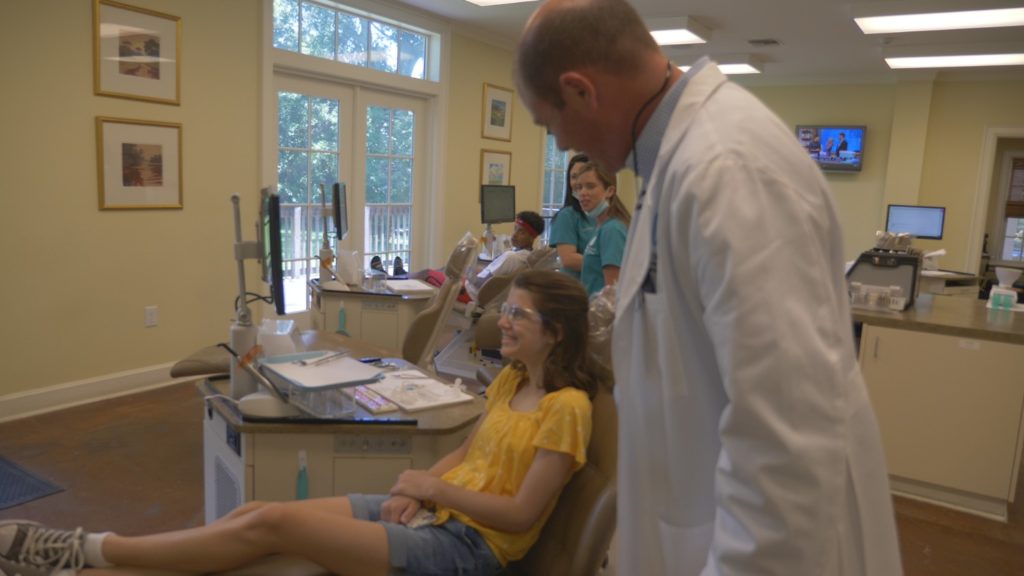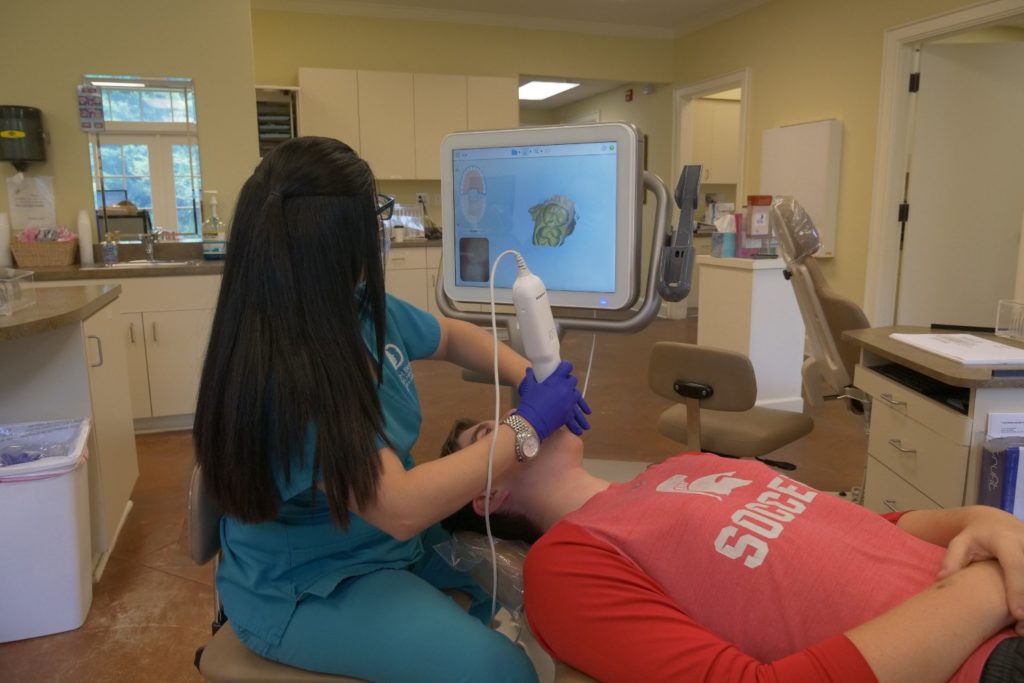Have you recently learned that your smile could benefit from orthodontic treatment? If you play sports and have braces on your horizon, you may be feeling nervous that this will sideline you when you’d rather be out on the field or the court. Although it’s a common worry, the goods news is, this is an entirely unfounded concern! Here at Bennett Orthodontics, we treat sports-playing patients frequently. There’s no reason to stop participating in any athletics you’re involved in while undergoing orthodontic treatment, even if you’re wearing brace. Don’t believe us? Just look at Dwight Howard, Cristiano Ronaldo, Venus Williams, and Brett Favre for a small sampling of professional athletes who have continued to dominate their sports while straightening their smile. That said, you will need to take precautions to keep your teeth, mouth, and braces safe from injury and damage, particularly if you play contact sports. Let’s explore the ways you can to protect your braces – and your smile! – without having to hang up your jersey.
Avoiding injuries while wearing braces
Injuries to the mouth and jaw that occur while playing sports are fairly common amongst athletes of all different levels. Protecting your smile during physical activity is especially important when you have braces due to the increased risk of oral injuries. These may occur if your mouth or your braces are hit by a ball or another player. These injuries are typically far from life-threatening, but they can still be painful, cause serious damage, and be costly to fix. Some of the more common sports-related injuries we see include:
- lacerations to the cheeks, lips and tongue
- chipped or broken teeth
- dislocation of the temporomandibular joint (TMJ)
- root fractures

When you are wearing a fixed orthodontic appliance like braces, it adds another element to these kinds of injuries. During a collision, braces can cut the inside of your mouth, causing lacerations. The braces themselves may also be damaged, including bent wires and broken brackets. The single best way to protect your teeth, mouth, and braces while playing sports is by wearing a mouthguard, preferably an orthodontic model. Even a basic mouthguard will help to prevent the kind of hits that could lead to bleeding gums, broken brackets, or even fractured teeth, particularly when playing contact sports like football, wrestling, soccer, basketball, and hockey.
Even if you are wearing a mouthguard, we strongly recommend you get in touch with your dentist as soon as possible upon receiving an injury to your teeth. He or she will be able to diagnose any root or jaw bone fractures. If you are one of our braces patients, contact us after your dentist has assessed and treated any tooth damage so we can see if your braces will need to be repaired or replaced as well.
More about mouthguards
Mouthguards are easy to find, simple to use, and highly effective. For athletes who want to avoid damage to their braces and injuries to their mouth, they can’t be beat! While they are especially useful for high-contact sports, wearing them for light contact or low-impact sports is also ideal, since even a small amount of pressure on your braces can irritate your mouth, or cause small cuts or abrasions to your gums and the inside of your cheeks.
While any mouthguard is better than not using one at all, an orthodontic mouthguard can be a worthwhile investment if you intend to regularly play sports while wearing braces. The high-grade silicone helps cushion your lips and keeps them from bumping against your teeth and braces, protecting the brackets from damage. This also stops your lip getting caught in your braces, which can be a pretty painful experience! While orthodontic mouthguards tend to be slightly larger than most regular mouthguards, the silicone makes them just as comfortable to wear.
Some orthodontic mouthguards, such as Shock Doctor and Tapout, can adjust to the movement of your teeth during treatment. This simply means they re-mold to your current bite, making them a great choice for any athletes in braces, as well as those without any orthodontic appliances. Most orthodontic mouthguards are affordable, and come in strapped or unstrapped styles. We strongly recommend that any of our sports-playing patients consider having an orthodontic mouthguard to keep their teeth, mouth, and braces protected.

Keep your smile safe while you straighten it with Bennett Orthodontics
It’s clear that mouthguards are an affordable, effective choice for patients in braces who want to continue playing sports. They will shield your teeth as they move into their new permanent positions, and help to protect the integrity of the orthodontic process itself. While an orthodontic mouthguard is always optimal, we encourage all of our patients to wear any mouthguard at all over none when participating in athletic activities.
If you are an athlete who has an appointment scheduled to have braces put on, or someone who is relatively new to orthodontic treatment, you may be wondering what braces will mean for your sports schedule. Dr. Bennett and the rest of our talented team are dedicated to helping you continue to participate in the sports you love while straightening your smile! We work hard to provide the best experience possible to every patient we treat. From the first appointment in our Mobile office to the last, we want to exceed your expectations with every interaction. Our skilled staff are always happy to answer any questions you have, or talk through any concerns with you, so get in touch with us today and let us set your mind at ease! With the protection of a mouthguard and our support behind you, you can have the best of both worlds: the sports you love and a smile you can keep safe while we straighten it!

